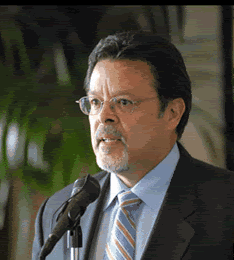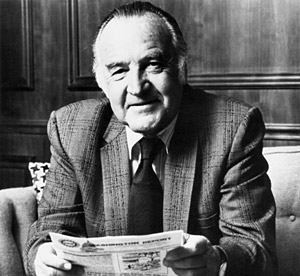García's attempt to oust LAUSD's Brewer: gaffe or gutsy?
Rick Orlov
Staff Writer - Los Angeles Daily News
December 6, 2008
To anyone who knows her, it is no surprise that Mónica García is in the middle of a political firestorm.
As president of the Los Angeles Unified School District Board of Education, García has emerged as the force behind efforts to remove Superintendent David L. Brewer III in the middle of his four-year contract.
Supporters say García is a fierce advocate for the Latino community and the disenfranchised, who has never shied away from a fight. But critics say her political ambitions have made it difficult for her to act independently of Mayor Antonio Villaraigosa, a longtime ally.
The Mayor's Office said he had nothing to do with last week's failed attempt to oust Brewer, when Garcí a could not bring together all seven board members to vote on his contract. But some school district watchers say the mayor, who is widely thought to favor hiring a new superintendent, has considerable influence with the current board.
"Had the mayor not been in favor of wanting Brewer to retire, then the board majority, starting with Mónica García, would likely not have moved to oust the superintendent," said Jaime Regalado, executive director of the Edmund G. "Pat" Brown Institute of Public Affairs at California State University, Los Angeles. ...
A lot of times, these endorsements are strategic, but hers are heartfelt and can only help her in the future," Regalado said.
Born and raised in East Los Angeles, Garcia attended Ramona Convent in Alhambra and went on to Berkeley, where she received bachelor of arts degrees in Chicano studies and political science.
Later, she earned a master's in social work from the University of Southern California.
Outside East Los Angeles and its climate of Chicano activism, García said she became aware of privilege, class and culture while a Berkeley student.
At a speech earlier this year to the Studio City Chamber of Commerce, she was quoted as joking that it was at Berkeley that she realized, "I was a person of color, which I had no idea. (I was) shocked that my life was so much in peril" growing up as a Latina in a working-class family in the barrio.
Those experiences, say her advocates, resonate in her work, including the recent attempt to remove Brewer.
Noting that the Daily News and the Los Angeles Times have editorialized for the removal of Brewer, Casillas said García's move should be welcomed by the press. But the timing, many have said off the record, was poor.
With the district facing the most severe fiscal crisis in recent history, the bond committee's Folsom said Brewer is a leader among education officials in fighting budget cuts in Sacramento. To remove him now will only take district attention away from the impending budget crisis.
"I have not seen true leadership from García on the budget and this is a huge diversion from where the board's focus should be," Folsom said. "Real leaders lead from the middle and build consensus. That hasn't happened here."


